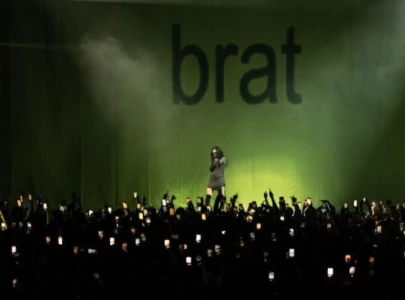
So, Russia decides to invade Ukraine on the night that Imran Khan touches down in Moscow for a state visit. The sheer madness of the Russian invasion of Ukraine is as basic as an ego or testosterone fueled phadda by young men in your mohalla. But to start a fight on the same night you’ve invited guests over for dinner is a line even gangsters don’t cross. That Putin is a thug and has the blood of thousands of Chechenia’s Muslims on his hands is not new news. But to invade another country when you’ve invited a state guest over is bonkers. They should have at least given Pakistan a heads-up.
Given the rather undiplomatic bind Russia put us in, both Imran Khan and Pakistan at international forums like the UN have played their cards about as well as they humanly can. This isn’t an easy pandora’s box to navigate. The original intent of visiting Russia was to send a signal to Washington DC and New Delhi that Pakistan should be engaged with, is an important regional player and not isolated. This was the right intent. But now there is pressure from America and our Western friends to support their moral and economic blockade against Russia, while China and our own interests warrant us to play a more nuanced role.
I asked one of our most seasoned diplomats, Ambassador Munir Akram, Permanent Representative of Pakistan to the United Nations, what Pakistan’s position is on the Russia-Ukraine conflict is at the UN. “Pakistan is deeply disturbed at the failure of diplomacy and that war has started,” shared Ambassador Akram. “We must defend the principles of the UN charter, including no use of force and respect for territorial integrity. Pakistan has called for consistent respect for these principles in all situations, including in Kashmir. Our Prime Minister has expressed regrets about the conflict. And our Foreign Minister has been in conversations with his Russian and Ukrainian counterparts. Our effort is to secure the earliest possible cessation of hostilities.”
That sounds reasonable but if we’re buying wheat and making plans for gas pipelines with Russia, while it invades another country, aren’t we behaving in the same way that other countries do with India when it goes rogue in Kashmir? Isn’t our entire gripe with our friends, including Arab countries, that they prioritise their economic relationship with India instead of the moral voice of the Kashmiris? Aren’t we doing the same by doing deals with Russia?
“Our total trade with Russia is only a billion dollars,” replied Ambassador Akram. “Our trade with the US is twenty times as much. We should have just sided with the West if this was an economic decision. We would not retain the space for our diplomacy (our efforts to bring both parties to the negotiating table), if we condemned Russia. This isn’t about wheat. We buy more wheat from Ukraine than we do from Russia.”
Fair enough and a very good diplomatic answer. One idea that’s been particularly bothering me is the underlying racism becoming visible in the West’s response to the Ukrainian crisis. Overnight, international decision-making process is being accelerated and broken to put pressure on Russia. Doors to Europe are being flung open for Ukrainian refugees. This is a good thing but we don’t see this kind of response when it comes to Palestine, Kashmir or even Afghan refugees. Why does the world suddenly spring into action when a white, European country comes under attack? Will Pakistan try to point out this hypocrisy at the UN?
“We have consistently and vigorously pointed out the double standards,” said the Ambassador. “And we’ll continue to raise the problem of double standards.” This year, Pakistan plays a particularly key role to be able to voice this as the serving Chair of the G77, which is a coalition of 134 developing countries, designed to promote its members’ collective interests and create an enhanced joint negotiating capacity in the United Nations. Among other things, Pakistan will be advocating for Covid vaccine equity, climate change adaptation funding for the global south as well as new SDRs for financing for IMF member countries but with an allocation that favours the global south, instead of the already privileged countries.
Published in The Express Tribune, March 6th, 2022.
Like Opinion & Editorial on Facebook, follow @ETOpEd on Twitter to receive all updates on all our daily pieces.





1719660634-1/BeFunky-collage-nicole-(1)1719660634-1-165x106.webp)







COMMENTS
Comments are moderated and generally will be posted if they are on-topic and not abusive.
For more information, please see our Comments FAQ